“Heavy Duty laundry Detergent” has been added to your cart. View cart
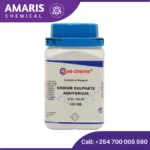
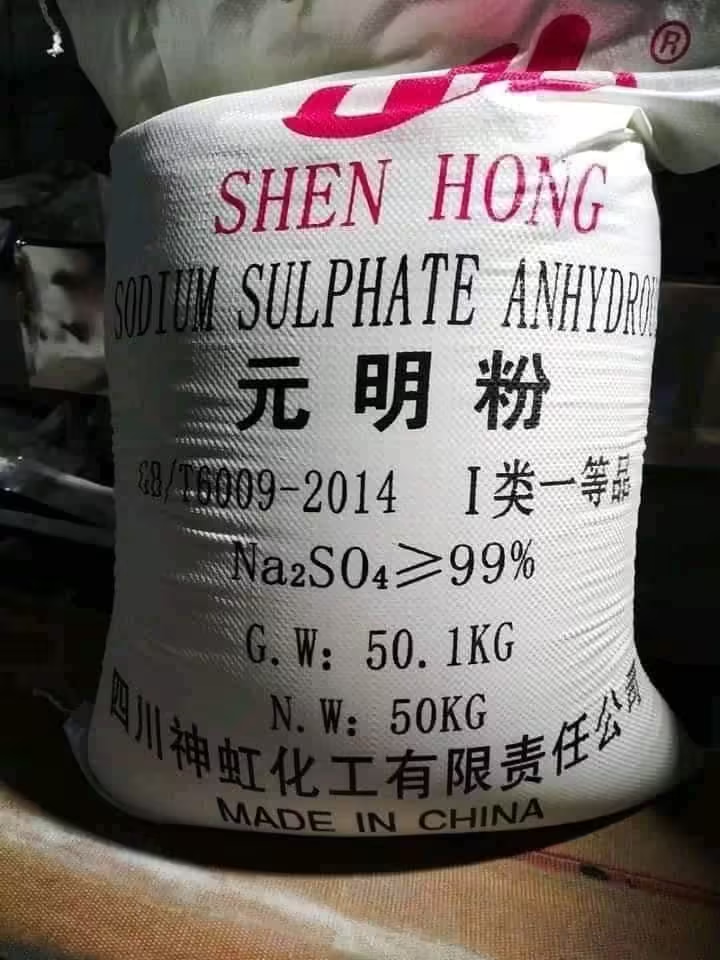
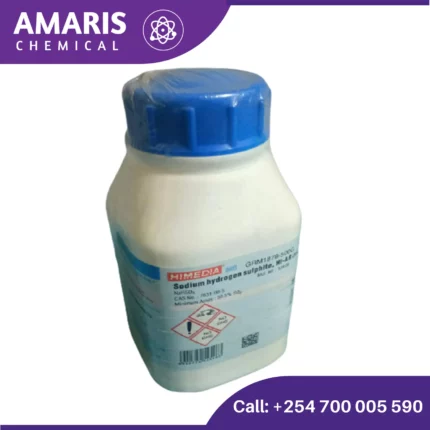
Sodium Hydrogen Sulphite 500gm
KSh2,500.00 Original price was: KSh2,500.00.KSh2,300.00Current price is: KSh2,300.00.
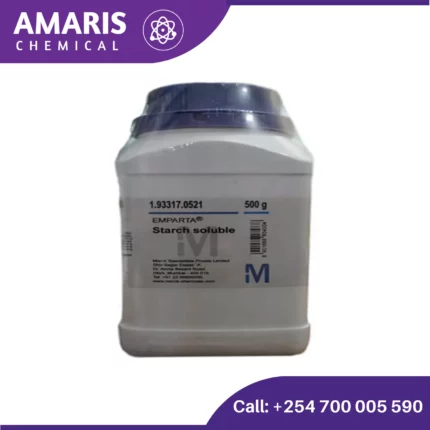
Soluble Starch Powder 500gm
KSh2,500.00 Original price was: KSh2,500.00.KSh2,300.00Current price is: KSh2,300.00.
Sodium Sulphate Anhydrous 500g
KSh2,500.00 Original price was: KSh2,500.00.KSh2,300.00Current price is: KSh2,300.00.
Sodium sulfate anhydrous, also known as anhydrous sodium sulfate or disodium sulfate, is a chemical compound with the formula Na2SO4. It is a white, crystalline powder that is soluble in water.
Here are some key properties of sodium sulfate anhydrous:
- Chemical formula: Na2SO4
- Appearance: White, crystalline powder
- Odor: Odorless
- Solubility: Soluble in water, insoluble in most organic solvents
- Melting point: 884 °C (1623 °F)
- Boiling point: 1400 °C (2552 °F)
- Hygroscopic: Yes (absorbs moisture from the air)
SKU:
ACS17764CHEM0
Categories: Analytical Reagents, Builders, Excipients, Finishing Agents, Wastewater Treatment Chemicals
Description
Uses of Sodium Sulphate Anhydrous
- Drying Agent: This is perhaps the most widespread laboratory application of sodium sulfate anhydrous. It efficiently removes water from organic solvents. Organic solvents are often used in reactions and experiments, but even small traces of water can interfere with the reaction or affect the results. Sodium sulfate anhydrous is a preferred drying agent because it is:
- Chemically inert: It does not react with most other chemicals, minimizing the risk of unwanted side reactions in the experiment.
- Efficient: It has a high affinity for water and can effectively remove moisture from solvents.
- Desiccating Agent: In laboratory setups where moisture control is crucial, anhydrous sodium sulfate is used as a desiccant to absorb moisture from the air. This helps maintain a dry environment and prevent moisture-sensitive chemicals or experiments from being compromised. For instance, desiccators, which are containers used to store moisture-sensitive chemicals or dry samples, often contain sodium sulfate anhydrous at the bottom to absorb any moisture that might enter.
- Karl Fischer Titration: This is an analytical technique used to determine the water content in a sample. Sodium sulfate anhydrous is employed as a desiccant during this process to ensure the complete removal of water from the reaction vessel before the titration begins.
Reviews (0)
Be the first to review “Sodium Sulphate Anhydrous 500g” Cancel reply
Shipping & Delivery
Related products
Amaris Basic Laundry Detergent.
Rated 5.00 out of 5
Caustic Soda Flakes 25 kg bags
Caustic Soda Flakes (Sodium hydroxide,) commonly known as caustic soda or lye, is a highly caustic and alkaline compound that is used in various industries for its strong basic properties, including the production of soaps, detergents, and paper. It is a white, odorless solid that is highly soluble in water and can be extremely hazardous if not handled properly. Sodium hydroxide is a strong base that can cause severe burns and tissue damage upon contact with skin and other organic matter.
Citric Acid Anhydrous 25kg
Citric acid is a weak organic acid that occurs naturally in citrus fruits such as lemons, limes, oranges, and grapefruits. It is a tricarboxylic acid with the chemical formula C6H8O7 and is commonly used as a food additive, preservative, and flavoring agent. Citric acid is also used in the pharmaceutical industry, as a chelating agent in cleaning and personal care products, and in the production of cosmetics and detergents. It is a white crystalline powder with a sour taste and is soluble in water.
Petroleum jelly 175kg
Petroleum jelly is a semi-solid mixture of hydrocarbons, usually derived from petroleum, that has a smooth and greasy texture. It is also known as petrolatum or Vaseline, which is a trademarked brand name. Petroleum jelly is commonly used as a moisturizer to soothe and protect dry, cracked, or irritated skin. It is also used in a variety of other applications, such as lubrication, waterproofing, and as a base for some cosmetics and pharmaceuticals.
Sodium Carbonate Anhydrous 500gm
Acidulants, Analytical Reagents, Builders, Finishing Agents, PH Adjusters, Soil Conditioners, Solvents
Sodium carbonate soda ash light is a refined form of sodium carbonate, which is a white, crystalline compound with the chemical formula Na2CO3. It is called "light" because it has a lower density compared to other forms of sodium carbonate.
Soda ash light is primarily used in industrial and commercial applications, including glass manufacturing, water treatment, detergent production, and as a pH regulator in various chemical processes. It is known for its alkaline properties and its ability to effectively neutralize acidic substances.
Sodium Hydroxide Pearls 500gm
Analytical Reagents, Builders, Coagulants and Flocculants, Drilling Fluids, Excipients, Finishing Agents, PH Adjusters
Sodium Hydroxide Pearls are small, solid beads of sodium hydroxide, a strong alkaline compound. They are commonly used in industrial applications, including cleaning, pH regulation, and chemical synthesis. The pearls dissolve easily in water, forming a highly caustic solution that can handle a variety of tasks, from de-greasing surfaces to adjusting the acidity of solutions. They require careful handling due to their corrosive nature and can cause severe chemical burns if not used properly.
Sodium Oxalate 500gm
Sodium oxalate (Na₂C₂O₄), also known as disodium oxalate, is a white, crystalline solid with a variety of applications, including some specific uses in laboratories. Here's a breakdown of its key properties, applications, and safety considerations:
Properties:
- Appearance: White crystalline solid
- Odor: Odorless
- Solubility: Low solubility in water, but increases with temperature
- Melting point: Decomposes above 290 °C (554 °F)
Urea 500gm
Urea is an organic compound with the chemical formula CO(NH₂)₂. It is a colorless, odorless solid, highly soluble in water, and practically non-toxic. Here are some key points about urea:
Chemical Properties:
- Formula: CO(NH₂)₂
- Molecular Weight: 60.06 g/mol
- Structure: Urea consists of two amine groups (-NH₂) attached to a carbonyl group (C=O).

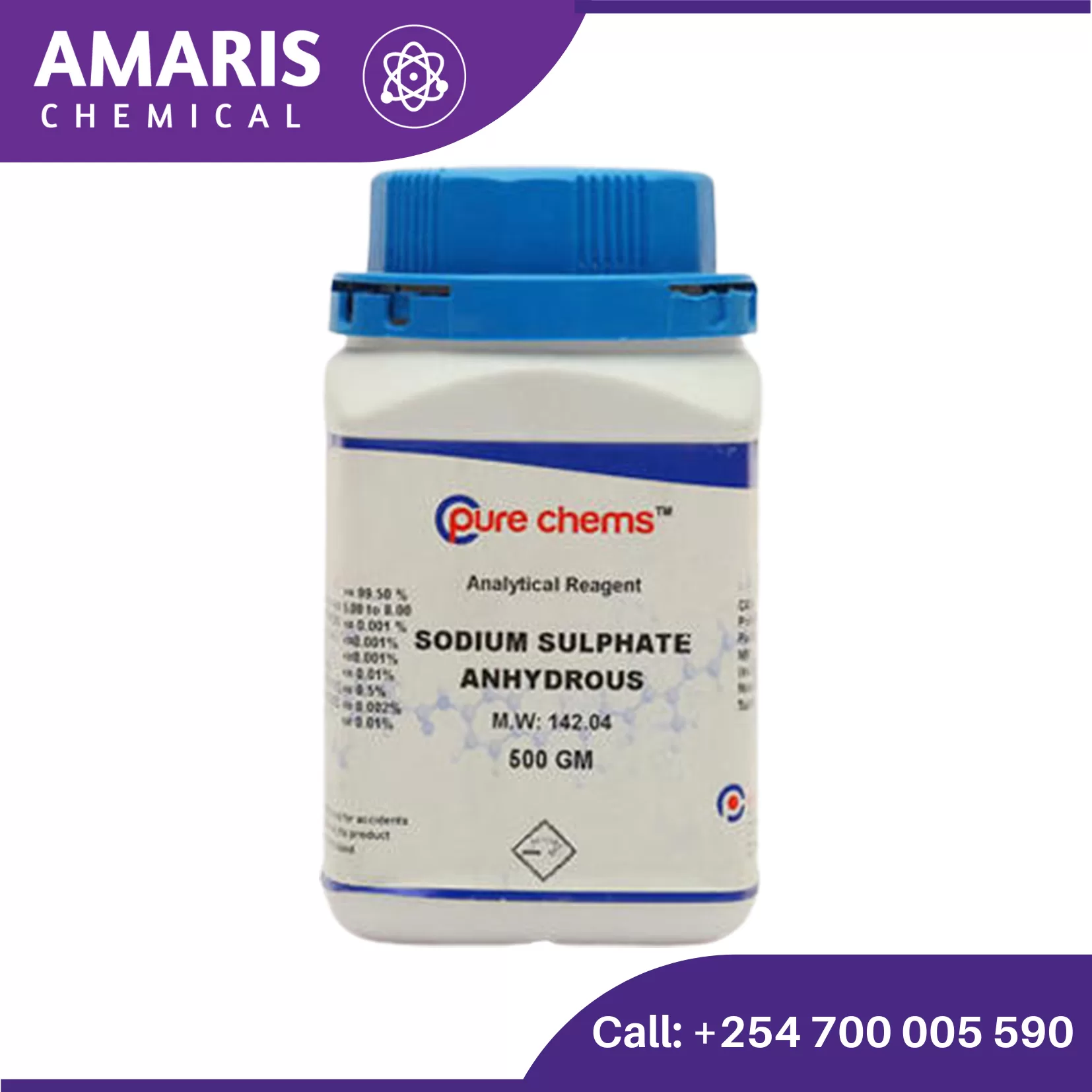


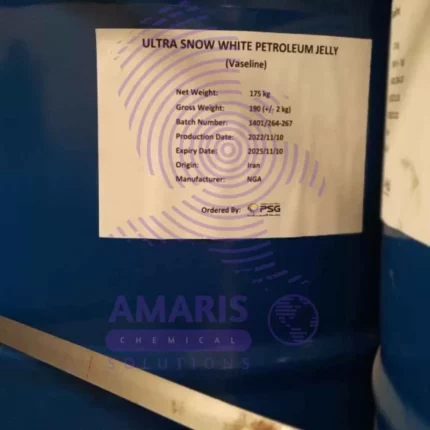
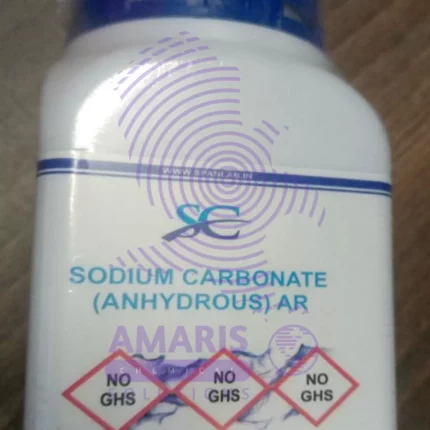

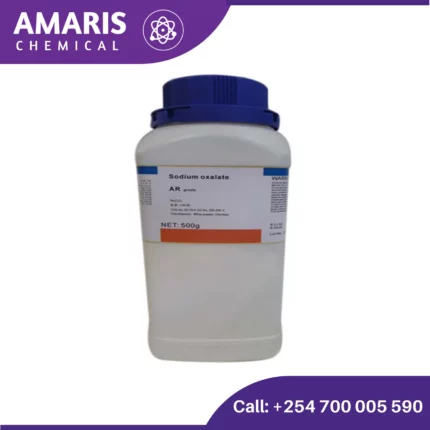
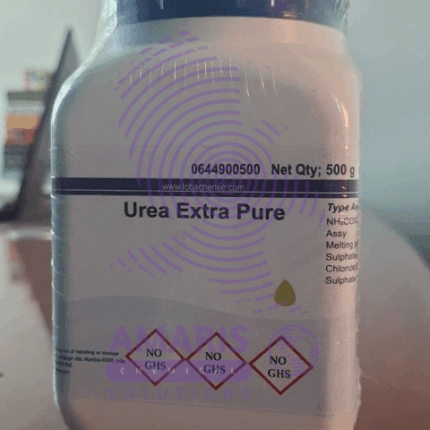
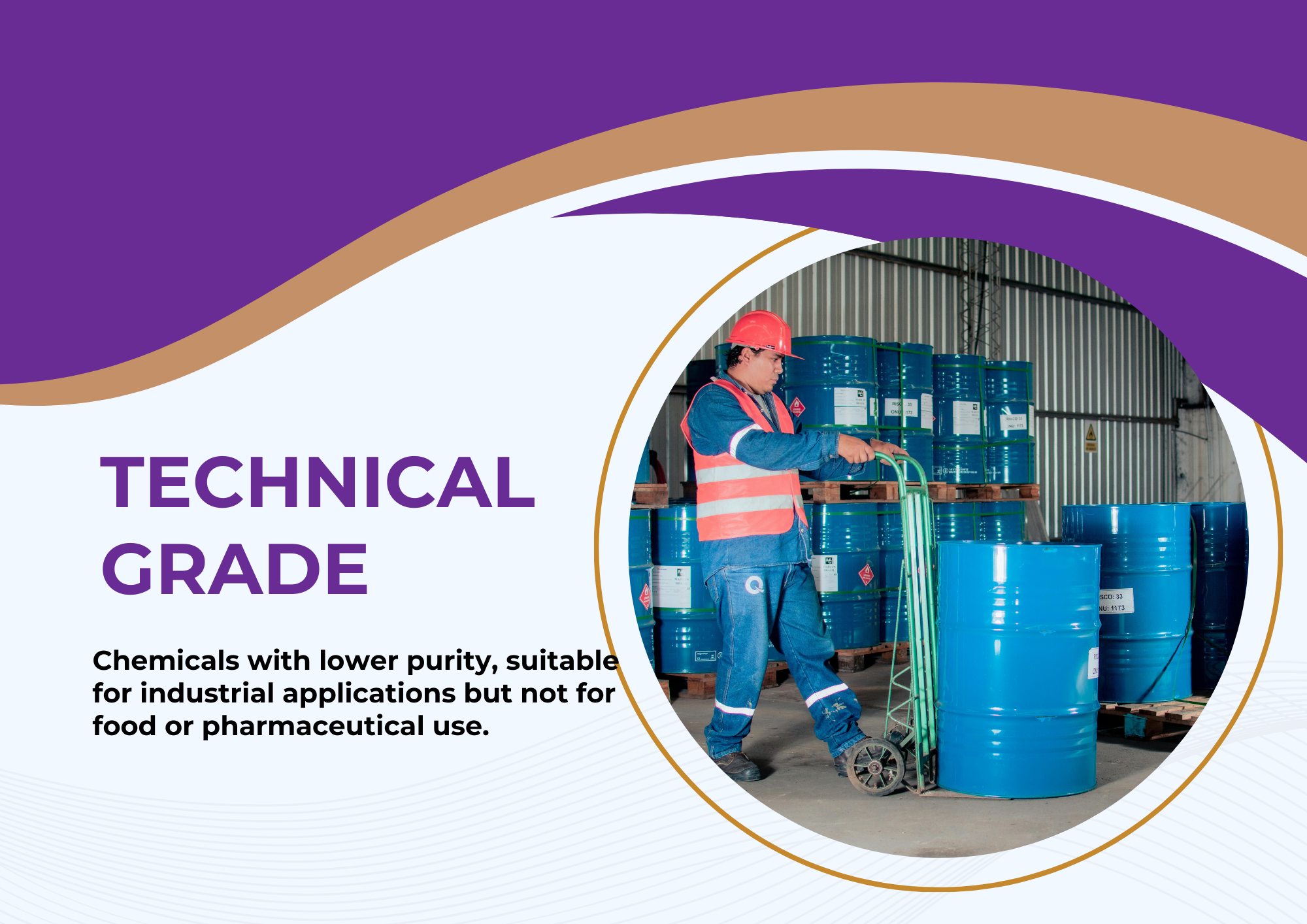



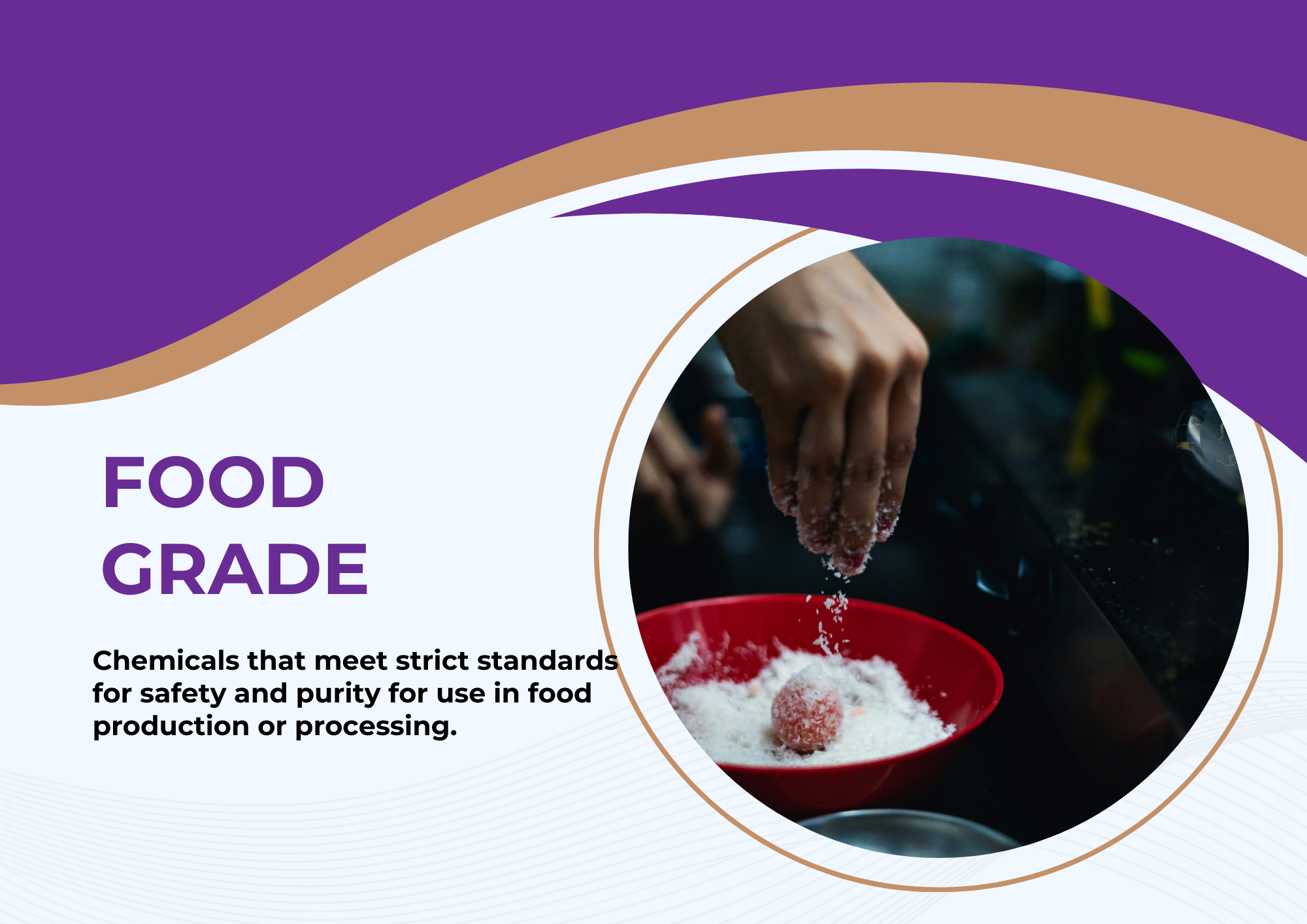

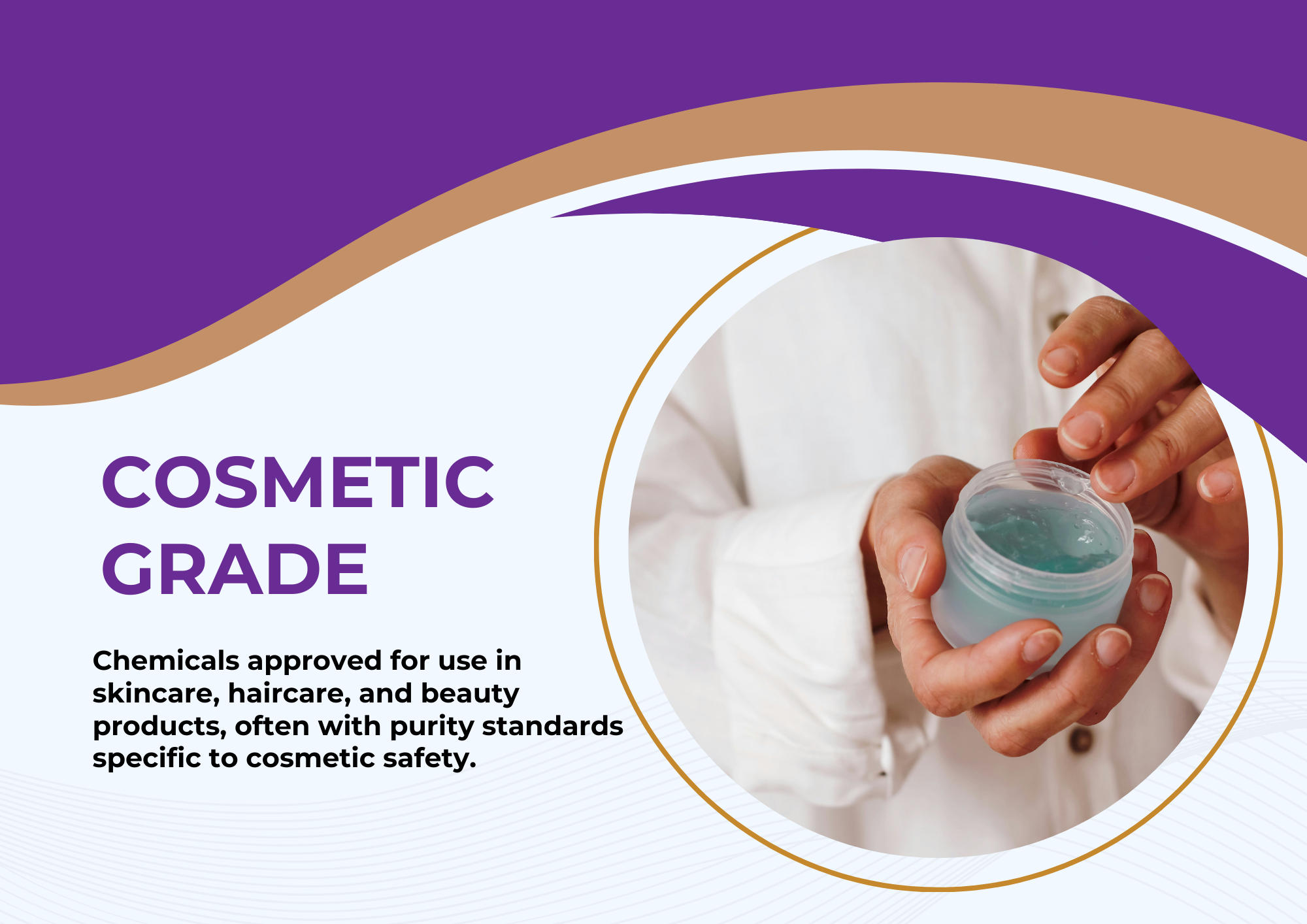
Reviews
There are no reviews yet.